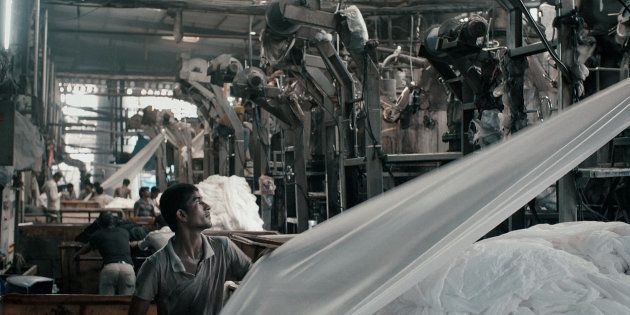![]()
The Uttar Pradesh government has approved an Ordinance exempting businesses from the purview of almost all the labour laws for the next three years, to give a fillip to investment in the state, affected by Covid-19.
“Horticultural and economic activities have been severely affected and slowed down in the state due to the outbreak of COVID-19. This is because businesses and economic activities came to a halt during the national lockdown,” a press statement dated May 6, issued by the state government, said.
It said the government had cleared the “Uttar Pradesh Temporary Exemption from Certain Labour Laws Ordinance, 2020” to exempt all establishments, factories, and businesses from the purview of all but four labour laws, for three years.
Only the Building and Other Construction Workers Act, 1996; Workmen Compensation Act, 1923; Bonded Labour System (Abolition) Act, 1976; and Section 5 of the Payment of Wages Act, 1936 (the right to receive timely wages), will apply in the state, according to the statement.
It also said the provisions related to children and women in the labour laws would continue. Other labour laws will become defunct. They include laws related to settling industrial disputes, occupational safety, health and working conditions of workers, and those related to trade unions, contract workers, and migrant labourers.
This will apply to both the existing businesses and the new factories being set up in the state. “The idea is that in the present circumstances, where we need to provide employment to workers who have migrated back to the state and to protect the existing employment, some flexibility has to be given to business and industry,” Uttar Pradesh Chief Secretary R K Tiwari told Business Standard.
He added that some labour laws had been kept intact, especially the ones related to women and children. Tiwari added the Ordinance would be sent for the Central government’s approval. Since labour is a concurrent subject under the Constitution of India, states can frame their own laws but need the approval of the Central government.
“It is absolutely shocking. This move of the Uttar Pradesh government turns the clock back by more than 100 years. It will lead to slave-like conditions for workers. It’s unacceptable, and in violation of human and fundamental rights. This move should be legally challenged,” labour law advocate Ramapriya Gopalakrishnan said.
Madhya Pradesh Chief Minister Shivraj Singh Chouhan held a press conference on Thursday, announcing the state government would exempt new manufacturing units from all but some provisions of the Factories Act, 1948, for the next 1,000 days (or over two and a half years).
“The reported labour law reforms by the UP government of exempting industries from all labour laws save three, all of them otherwise poorly implemented by any government, are beyond the scope of imagination and will make even the most vocal labour flexibility advocates to shame and industries would not have imagined getting these ‘holidays from labour laws’,” XLRI Jamshedpur professor and labour economist K R Shyam Sundar said.
He said the move might prove counter-productive as “good capital chases high labour standards”. “The Covid-19 times are witnessing fall in labour standards like a pack of cards.
The argument of occupying the market space vacated by China is taken far too seriously by this state,” he added.
State governments have witnessed a severe shortage in revenue after the national lockdown because businesses are shut. Many migrant workers in states such as Madhya Pradesh and Uttar Pradesh have returned from places like Kerala, Delhi, Gujarat, and Maharashtra.
States have begun easing labour laws to attract investment.
We are providing training in Labor Laws, Payroll, Salary Structure, PF-ESI Challan, Advance Excel, Bonus, TDS-Form 16 & more:
- HR-Generalist-Practical-Training: https://oneclik.in/hr-generalist-practical-training/ (PF, ESI, Bonus, Payroll & more)
- Labour-Law-Practical-Training: https://oneclik.in/labour-law-practical-training/ (Factory, Contact Labor, Maternity Act & more)
- PF – ESI Consultant Service: https://oneclik.in/pf-esi-consultant-service/
To get connected & for latest HR, IR, Labor Law Updates:
- Telegram Channel: “One Clik”
- Whatsapp Group: https://wa.me/919033016939
- Facebook: One Clik
- Linkedin: One Clik
- Instagram: oneclik_hr_management


Can a copy of the Ordinance/notifaction by UP Government be shared.
Thanks and Regards
We will update shortly with same. Thank you.